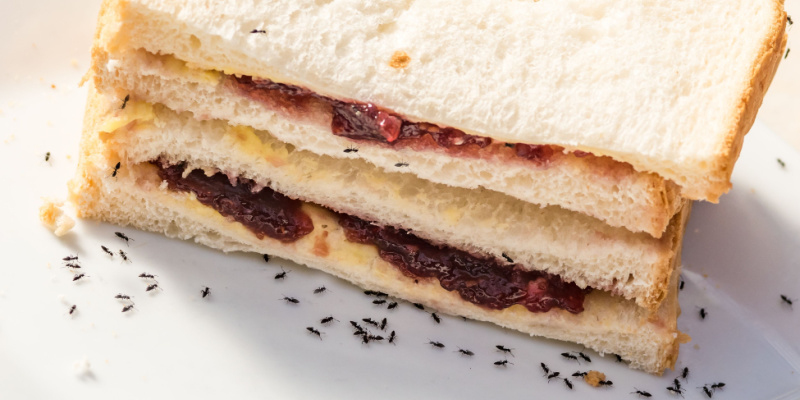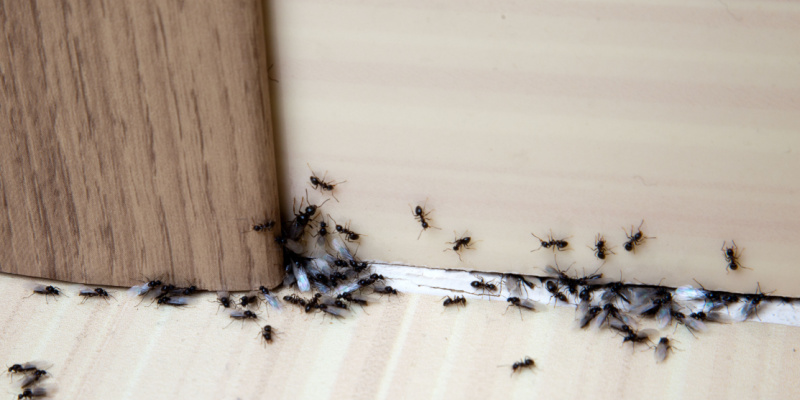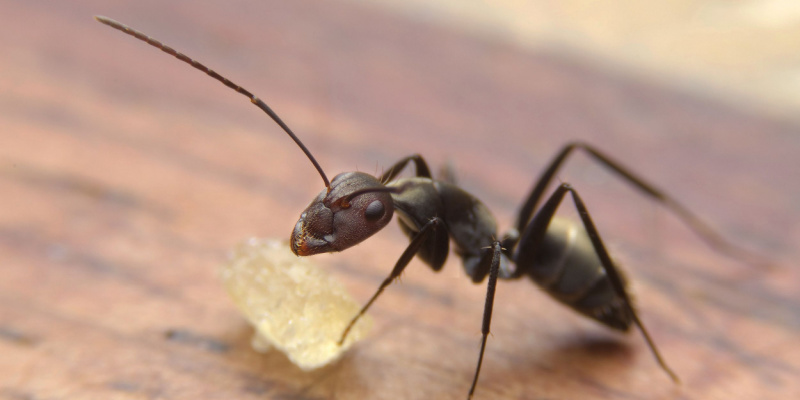Ah, ants! These tiny creatures, while fascinating in the wild, can become quite a pest when they invade our Indianapolis homes. For many homeowners, eliminating an ant infestation becomes a game of whack-a-mole: you think you’ve solved the problem, only to see another trail of ants a few days later. So, why are these tiny invaders so challenging to eliminate? Let’s dig deeper.
1. Social Structure and Rapid Reproduction
Ants live in colonies, often housing thousands to millions of individual ants:
- Multiple Queens: Some ant species have more than one reproductive queen in a colony, leading to rapid population growth.
- Protection: Ants prioritize protecting their queen, ensuring the colony’s survival even when many worker ants are eliminated.
2. Communication via Pheromones
Ants possess a sophisticated communication system, leaving chemical trails (pheromones) for others to follow:
- Pheromone Trails: If you’ve ever wondered how ants always follow the same path to a food source, it’s because of these trails. Even if you wipe away the current ant trail, others can quickly find the path due to the lingering chemical cues.
- Alert System: Ants can alert their peers to danger. When you kill a few of them, others might scatter and regroup elsewhere.
3. Hidden and Extensive Nests
The ant trail in your kitchen is just the tip of the iceberg:
- Inaccessible Locations: Ants often nest within walls, under floors, or deep in the ground, making them hard to reach.
- Satellite Colonies: In addition to the main colony, ants may establish smaller satellite colonies closer to food sources. So, while you might tackle one nest, others could remain active.
4. Adaptability and Resilience
Ants are survivors and can adapt to various situations:
- Varied Diet: They aren’t overly picky about food. If you remove one food source, they’ll find another.
- Environmental Adaptation: Ants can thrive in various conditions, from the humid summers to the cold Indianapolis winters, adjusting their behavior accordingly.
5. Over-the-counter Treatments Aren’t Always Effective
Many homeowners in Indianapolis first opt for store-bought solutions:
- Temporary Relief: While these treatments might kill the ants you see, they often don’t target the root of the problem – the nest and the queen.
- Wrong Treatment: Different ant species require different treatments. Using the wrong one might be ineffective.
6. The Indianapolis Factor
Our beloved Indianapolis has unique factors that make ant control especially challenging:
- Urban Landscape: The mix of green spaces and urban structures provides ample opportunities for ants to nest and find food.
- Weather Variability: With four distinct seasons, ants in Indianapolis have evolved to seek shelter during colder months, making homes an ideal refuge.
Overcoming the Ant Challenge: Tips for Indianapolis Homeowners
Though ants are resilient, they aren’t invincible. Here are some strategies:
- Professional Inspection: A thorough professional inspection can identify the ant species, locate nests, and suggest the best treatment.
- Bait Systems: These target ants you don’t see. Worker ants carry the bait back to the colony, effectively poisoning it from within.
- Seal Entry Points: Ensure all cracks, crevices, and gaps in your home’s structure are sealed.
- Keep a Clean Home: Regularly clean up crumbs and spills, and store food in sealed containers.
It’s Not You, It’s Them
If you’ve been struggling with an ant infestation, don’t be too hard on yourself. These creatures have evolved over millions of years to be the resilient pests they are today. But with the right knowledge and approach, you can reclaim your Indianapolis home.
For expert ant control solutions in Indianapolis, trust Trio Pest Control. Our team understands the unique challenges posed by local ant species and offers tailored, effective solutions.



